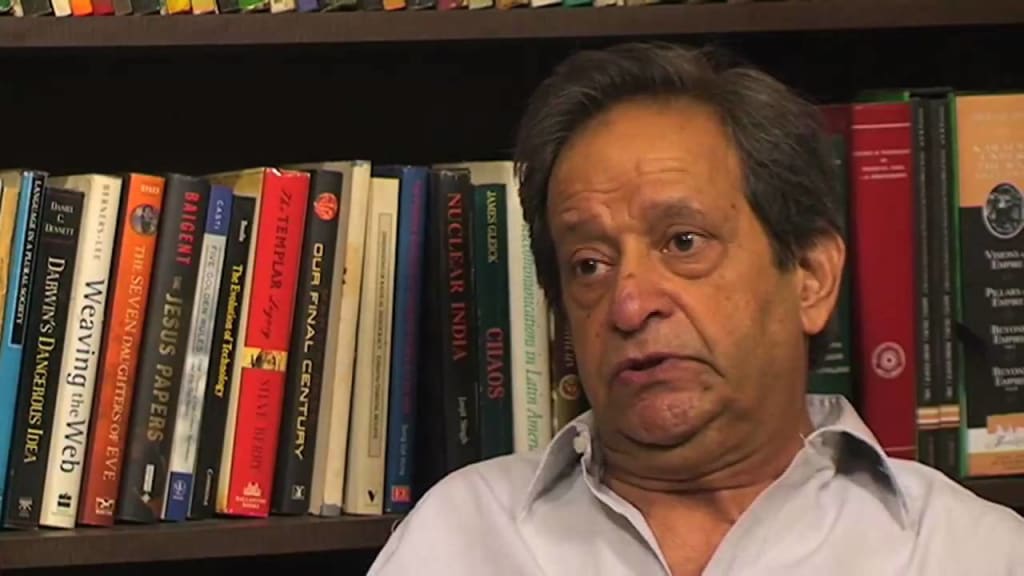
First published in 1992 immediately following the collapse of the Soviet Union, ‘In Theory: Classes, Nations, Literatures’ by Aizaj Ahmad takes up the national question at a world historic moment where governments negotiate at the cusp of a global geo-political reordering of allegiances. The political impetus provided by the establishment of State Socialism, first in USSR and then in China provided the crucial reinforcement needed for the spine of a global anti-imperialist wave which witnessed the liberation of Vietnam, the spread of revolutionary energies into Cuba, the decolonization of much of Africa and the cementing of Eastern Europe into a Socialist bastion – largely enabled by economic, military and technological aid from the first two countries to have harboured Proletarian Revolutions.
In such a scene, which unmistakably bears the grief of what appears to be the failure of what we now call 20th century socialism – Ahmad takes up the properly Leninist task, to begin from the beginning again! Yet a beginning which is located immanently within the political and institutional moorings of criticism and literature produced in the sub-continent. Painstakingly tracing the deployment and function of the English language which was introduced by the Colonial Raj in its drive to create a class of intermediary officials between its offices and the masses, to it’s following professionalisation as a language which granted access to the knowledge of scientific advancements made in the rest of the world. The inherent schizophrenia of a language which is used for professional purposes yet doesn’t embody the emotive lives of its speakers is brought to bear in the course of it’s multifaceted expressions in the early years of the establishment of Literature departments which taught English.
From such stunted origins Ahmad attempts to bring forth some of the ways in which it may be possible to periodize these changes within the broader historiography of the Nationalist struggle and highlights the forms of inter-cultural transmission made possible by the work of transalation which were internationally coallecing into the body of literature available in English. From our perspective, this period today is intimately marked by what we in a Post-Colonial world call ‘Orientalism’, conceptually popularized by Edward Said and infamously remembered in adages of Macauley’s minute which no longer warrants recounting. Yet what is acutely picked up is the very opposite movement, of the immense translations into European languages of Indian texts by scholars from the ‘first world’. The extensive investigations in Indology for example are also initiated in this period which harbored the translation of the Uppanishads.
Politically, the renowned American Marxist literary critic, Fredric Jameson had just suggested ‘National Allegory’ as the predominant form of narrative produced in the 3rd world, and this being their narratorial signature which distinguishes it from other narratives. Here Ahmad tries to point out the largely polemical content of the category ‘third world’ and seeks to reintroduce the gap between the schemata of narratorial structure and the order in which different parts of the globe were industrialized.
Along the way, he takes up the cause of Rushdie and the politics of his persecution and investigates the political dramaturgy of Nehru in his addressal at the Bandung conference. A negotiation clearly directed both inside his own party, the Congress which way wary of his socialist leanings and to the Communist movement in India which had not yet been elected in Kerela. The model of such mediatory addressal within the nation was however delivered at an international summit, and Ahmad uses this as an analogy to describe how centrist forces such as Nehru, Nasser and Sukarno negotiated with the communist and socialist movements in their own countries while steering the Non-Aligned movement into what it becomes.
I’d highly recommend it for literature, history and philosophy students and even for scholars investigating the period in question from sociology or political science. It is also perhaps the most comprehensive account of the political impetuses of the literature produced in that time for a casually interest reader.
At the end of this however, I must also convey that I am told by an old prof of mine that Ahmad’s reading of Marx is wrong though he hasn’t really specified how so :/ …till i know more about that to adequately






Comments
There are no comments for this story
Be the first to respond and start the conversation.